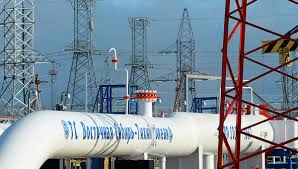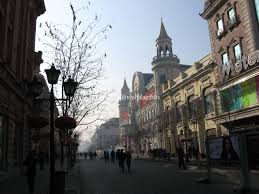(IBT) In the six days since Malaysia Airlines Flight 17 was brought down by a missile over eastern Ukraine, amid intensifying suspicions of Russian involvement, the European Union has struggled to reconcile its desire to sanction Russia with its reliance on the country’s energy resources. But for Russia, dealing with U.S. and EU sanctions since earlier this year over the Ukraine crisis, the inverse dilemma is no less vexing: How to wean its economy off its dependence on European imports.
Once endowed with a complex economy that exported manufactured goods, Russia is now an energy state: Today, oil and natural gas account for two-thirds of its exports and 80 percent of its foreign exchange earnings. No other major economy in the world — Russia’s currently ranks ninth by GDP — depends so much on oil and gas prices for its health. […]
According to Dmitry Gorenburg, a Russia expert at CNA, Russia’s energy ties with China are best thought of as a temporary marriage of convenience rather than a long-term strategic pivot.
“If down the road there’s a de-escalation in the current crisis with Ukraine, and Europe lifts or partially lifts sanctions, the tendency in Moscow would be to refocus on Europe,” Gorenburg said.
“The ideal for Russia is for China to be an additional customer in pipeline deals, not a substitute for Europe,” says Gorenburg.
“The one thing we have to remember is that China, as close as they’ve gotten with Russia on energy, their economic cooperation and trade with the U.S. and the EU is always far more important than whatever they’ve got going on with Russia,” Gorenburg said.
See the full article © International Business Times (IBT)











